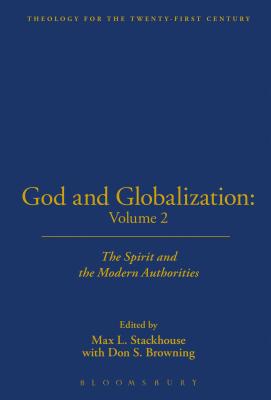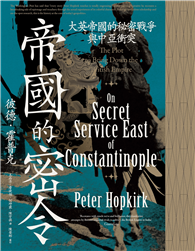Globalization is a reality in today’s world, and with it comes the universalization of the influence of certain Powers and Authorities. These Authorities--Education, Law, Medicine, Technology--distance people from, and sometimes override the duties of, familial and religious connections and have generated new spheres of loyalty and practice that are touchstones for modern life as a whole.
The contributors claim that the Authorities of modernity depend upon spiritual themes and insights. However, they note, these authorities lack a conscious moral rudder because they are not only ignorant of their roots, but because they have often repudiated them, leaving these professions morally and spiritually vacuous. The essayists claim that theological and ethical resources--Christian in root, public in character, and universal in implication--can re-engage these Authorities and offer them guidance.
Contributors to the volume include: Richard Osmer (Princeton Theological Seminary); John Witte, Jr. (Emory University); Allen Verhey (Hope College); Ronald Cole-Turner (Pittsburgh Theological Seminary); Jürgen Moltmann (University of Tübingen); and Peter Paris (Princeton Theological Seminary). Max L. Stackhouse is the Stephen Colwell Professor of Christian Ethics at Princeton Theological Seminary and is the author of Christian Social Ethics in a Global Era. Don S. Browning teaches at the Divinity School of the University of Chicago and is the author of Religious Thought and the Modern Psychologies: A Critical Conversation in the Theology of Culture.
| FindBook |
有 1 項符合
God and Globalization: Volume 2: The Spirit and the Modern Authorities的圖書 |
 |
God and Globalization: Volume 2: The Spirit and the Modern Authorities 作者:Stackhouse 出版社:T & T Clark International 出版日期:2009-03-15 語言:英文 規格:平裝 / 244頁 / 21.1 x 13.7 x 1.5 cm / 普通級 |
| 圖書館借閱 |
| 國家圖書館 | 全國圖書書目資訊網 | 國立公共資訊圖書館 | 電子書服務平台 | MetaCat 跨館整合查詢 |
| 臺北市立圖書館 | 新北市立圖書館 | 基隆市公共圖書館 | 桃園市立圖書館 | 新竹縣公共圖書館 |
| 苗栗縣立圖書館 | 臺中市立圖書館 | 彰化縣公共圖書館 | 南投縣文化局 | 雲林縣公共圖書館 |
| 嘉義縣圖書館 | 臺南市立圖書館 | 高雄市立圖書館 | 屏東縣公共圖書館 | 宜蘭縣公共圖書館 |
| 花蓮縣文化局 | 臺東縣文化處 |
|
|
內容簡介
作者簡介
Normal 0 ! /* Style Definitions */ p.MsoNormal, li.MsoNormal, div.MsoNormal {mso-style-parent: ""; margin:0in; margin-bottom: .0001pt; mso-pagination: widow-orphan; font-size:12.0pt; font-family: "Times New Roman"; mso-fareast-font-family: "Times New Roman";} h1 {mso-style-next: Normal; margin:0in; margin-bottom: .0001pt; mso-pagination: widow-orphan; page-break-after: avoid; mso-outline-level:1; font-size:12.0pt; font-family: "Times New Roman"; mso-font-kerning:0pt;} @page Section1 {size:8.5in 11.0in; margin:1.0in 1.25in 1.0in 1.25in; mso-header-margin: .5in; mso-footer-margin: .5in; mso-paper-source:0;} div.Section1 {page: Section1;} > Max L. Stackhouse is Rimmer and Ruth de Vries Professor of Reformed Theology and Public Life Emeritus at Princeton Theological Seminary and coordinating editor of the "God and Globalization "series. Don S. Browning teaches at the Divinity School of the University of Chicago.
Globalized wisdom of the XXI century
The Translation of Holy Quran (聖クルアーン) Japanese Languange Edition Ultimate
Mother of Invention: Mother Teresa and the Franciscan Servants of Jesus
Is EVOLUTION True?: Why Darwin’s Rejection of Intelligent Design no longer makes sense. Why Life really is a miracle in the true sense
Systematic Theology (Volume 3)
A System of Logic: Ratiocinative and Inductive, 7th Edition, Volume. II
The Syrian Christ
Christianity as Mystical Fact, and the Mysteries of Antiquity
Christmas Evans, the Preacher of Wild Wales; His country, his times, and his contemporaries
|











